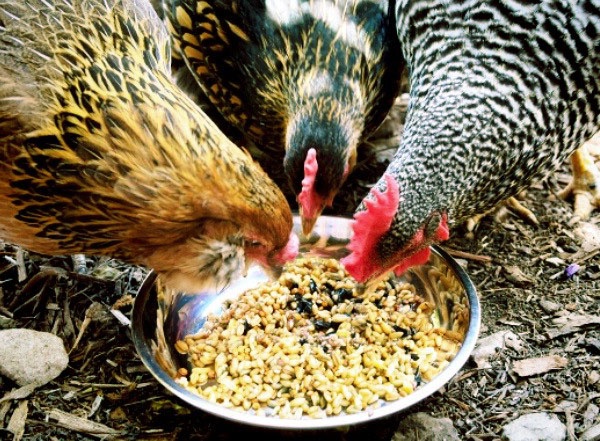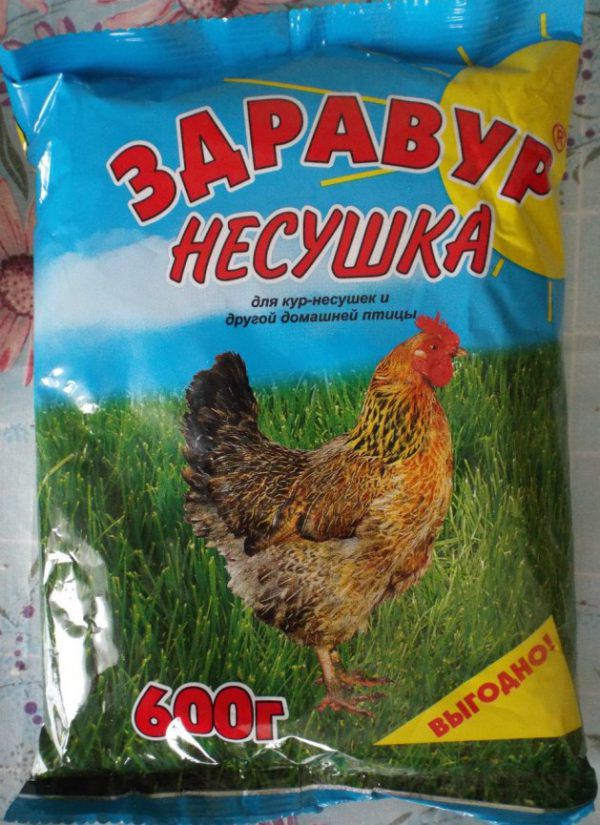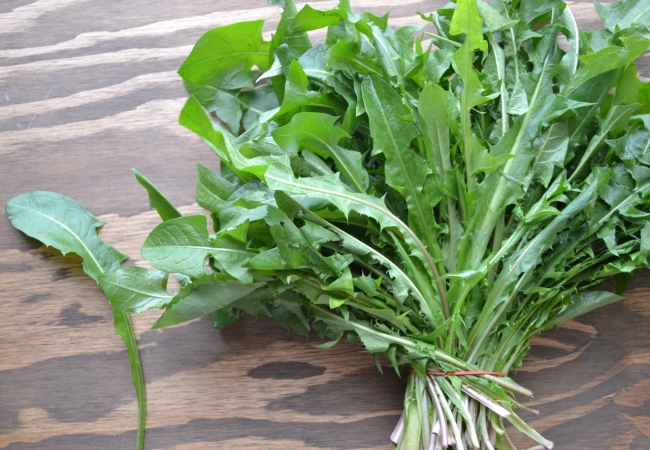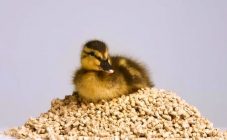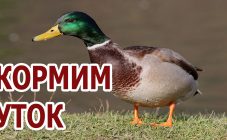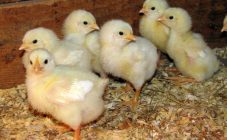Content:
Feeding chickens has its own characteristics, depending on age (from chicken to adulthood) and on the direction of the breed.
When starting egg-laying chicken breeds, it is necessary to provide them with high-quality food. Otherwise, the ability to lay eggs will be reduced or completely dry out. A well-chosen diet will provide chickens with the necessary nutrients, vitamins and trace elements.
Feeding hens
Despite the fact that chickens are among the most picky poultry, they must be provided with a varied diet. Suitable for feeding them are cereals, leftovers from the master's table, green herbs, compound feed for other farm animals. How to feed laying hens at home?
By mixing such different food sources, you can get a deficiency of any trace element, which will lead to weakening of health and the death of the livestock. Chickens with insufficient nutrition will not be able to fully lay eggs, since their formation will occur when the internal resources of the body are used.
Currently on sale you can find specialized feeds containing all the necessary substances. You can also make your own formula to feed your herd.
Preparing feed for hens at home
How to feed laying hens? You can make both dry and wet food at home. Choosing your own ingredients will give you confidence in the quality of your raw materials.
When making wet mash, you can use crushed grains, remnants of cereals, cake. You can also add root vegetables and other vegetables such as potatoes, pumpkins, carrots, and beets. All this will ensure the feeding of laying hens at home.
The liquid component of such mixes is heated water or milk whey.
In the summer, chickens like to peck at fresh greens, so green food must be present in the feed. They contain many essential vitamins and minerals. In winter, their deficiency can be replenished by adding fish oil to the diet.
There is a perfect homemade dry food option. It includes:
- corn;
- wheat;
- barley;
- sunflower meal;
- meat and bone and fish meal;
- yeast;
- herbal flour;
- legumes;
- vitamins and salt.
By combining these ingredients, you can make high quality food. In addition to controlling the quality of the initial products, self-production of feed significantly saves money.
Fortification of feed with yeast proceeds according to the following scheme:
- Dissolve 20 g of dry baker's yeast in 1.5 liters of heated water;
- add 1 kg of compound feed to the resulting solution;
- mix the resulting mass thoroughly;
- leave for 8 hours in a warm place.
Prohibited foods for chickens
In order not to harm chickens, you should know which foods should be excluded from the diet of birds.Otherwise, you can get sick livestock, the treatment of which can take a lot of time and effort.
Prohibited:
- Any sausage product can cause heart attack or stroke in birds;
- Pure milk should be given with caution. The gastrointestinal tract of chickens contains a small amount of lactic acid bacteria. Constant feeding of chickens with milk can provoke the development of dysbiosis. In addition, they lack the enzyme responsible for the breakdown of lactose;
- Cheese. The spices and preservatives included in the composition negatively affect the well-being of birds, and high fat content can increase the risk of obesity;
- Soups contain a large amount of salts and spices that negatively affect the state of the animal's body;
- Coffee and chocolate are prohibited because they contain caffeine and theobromine;
- Alcohol can increase the development of liver degenerative processes because birds are unable to digest alcohol;
- Compotes and preserves are prohibited due to the high amount of sugar in the composition. The pancreas of chickens is not able to provide the body with such a high amount of insulin. In addition, sugar is a good breeding ground for pathogenic microorganisms;
- The oil is also not absorbed by the body of chickens.
Feeding rules for laying hens
In natural conditions, chickens search for food almost every day. However, in limited conditions, excess nutrition will not add to the health and the number of eggs produced. Compliance with a strict diet will allow the body of chickens to prepare and carefully assimilate the entire amount of food received.
It is enough to feed the hens 2-3 times a day. Variations in the number of feeds are left to the discretion of the farmer, based on the general well-being of the individuals.
The following scheme will help to calculate the correct amount of feed per 1 individual:
- per day for one chicken you need 100-125 grams of feed;
- for every 100 grams of bird weight in excess of its norm, it is required to add 5 grams of feed per day.
In winter, due to the lack of fresh herbs, it is necessary to replenish the vitamin deficiency. Chopped or grated zucchini, pumpkin and carrots work well for this. Sunflower cake will saturate the body with proteins and fats.
Hay harvested from summer can be hung in small bunches. The constant presence of gravel in separate feeders is imperative.
In cold weather, three meals a day are recommended for chickens. Also, drinking water should always be warm.
In the summer, the diet has its own characteristics. When taking chickens for a walk, the number of feedings should be reduced to two. It is necessary to remove gravel, chalk and greens from the feed. Poultry find these components on their own when walking.
If in the summer the chickens are kept in a closed small room, then the same diet should be kept as in the winter. What it costs to feed chickens so that they run well is described below.
Products that increase egg production
The question "What is the best way to feed the chickens so that they lay a lot of eggs?" To increase the productivity of layers, you can add to the feed:
- seaweed - strengthens the eggshell and intensifies the color of the yolk;
- a solution of apple cider vinegar has a positive effect on the feather cover and the general condition of the body;
- fish oil contains essential vitamins;
- chalk, as a source of calcium, strengthens the shell;
- premix - a complex of vitamins and minerals, supports the process of egg production, increases slaughter weight;
- fishmeal is a source of protein, normalizes metabolism, enriching food with amino acids;
- the shell normalizes malfunctioning of calcium metabolism, for preventive purposes it is used to prevent rickets, thinning of the gray shell.
Grain for feeding hens
What grains to feed hens with? Among the variety of grain crops, the main ones should be highlighted:
- corn is rich in carbohydrates, you need to chop it for better absorption;
- wheat is rich in vitamins of group B, E, vegetable proteins;
- wheat bran is superior in energy value to whole grain crops;
- barley is generally useful for all breeds of chickens;
- oats, rich in fiber, must first be steamed and chopped;
- oat bran can replace up to 20% of cereals in the diet.
Vitamins and minerals
Chickens can get almost all the necessary vitamins by pecking fresh greens from spring:
- vitamin A is found in dandelion leaves, broccoli, spinach and pumpkin;
- soy, wheat and fish flour are the source of choline;
- vitamin B12 is found in milk, yogurt, seaweed;
- an abundance of vitamin E is found in asparagus, pumpkin, beets and spinach;
- biotin is found in oats, peas, cabbage;
- fish is a natural source of vitamin D3;
- folic acid deficiency can be replenished with flax seeds, celery and carrots;
- riboflavin is found in greens, soybeans, asparagus;
- vitamin K, which is responsible for blood clotting processes, is found in basil, sage, cabbage and cucumbers;
- vitamin B6 is found in sweet peas, weeds, and sunflower seeds.
A separate problem is the replenishment of minerals. Calcium is excreted from the body in the shell. With a calcium deficiency, laying hens can injure the vertebrae. The diet should contain 3-4% calcium, 0.3-0.4% phosphorus and 0.2% sodium from the total feed.
In conclusion, it can be said that in order to obtain a healthy and strong herd of chickens, providing a constant flow of eggs, it is necessary to follow some feeding rules. The portion should not be too large - excess food will lead to the development of obesity in chickens. A portion should be eaten within 60 minutes. In the summer, it is necessary to reduce the number of feedings, thanks to the release of chickens for walking, where they can independently find the missing components. In winter, it is necessary to feed chickens more often, necessarily adding sources of vegetable proteins and trace elements to the diet.
